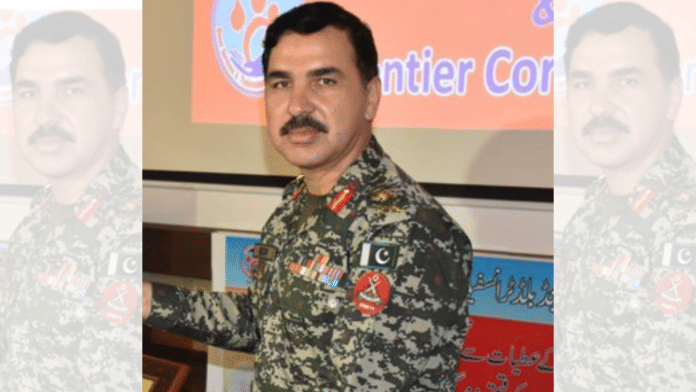New Delhi: In a first, the Pakistan government has appointed a serving army officer, Major General Noor Wali Khan, to the high-ranking civilian post of additional secretary in the Ministry of Interior and Narcotics Control, a position traditionally reserved for senior bureaucrats.
The decision was formalised through a notification issued by the Establishment Division Monday.
The Pakistani government’s decision to appoint a serving major general in the Ministry of Interior is tied to the creation of a new paramilitary force, the Federal Constabulary, tasked with counterterrorism operations. Earlier in July, Interior Minister Mohsin Naqvi said the government is considering appointing a serving or retired two-star army general to lead the civil armed forces wing of the ministry.
He added the move aims to improve coordination between civil armed forces such as the Frontier Corps, Rangers, Coast Guard, Gilgit-Baltistan (GB) Scouts and the new Federal Constabulary, and the military for more effective counterterrorism operations.
The ministry oversees their operations as well as that of the Anti-Narcotics Force. These agencies are all currently involved in critical counter-insurgency and anti-drugs operations across Pakistan, particularly in Khyber Pakhtunkhwa and Balochistan.
Naqvi added that converting the Frontier Constabulary into a national-level Federal Constabulary was necessary to meet the growing security needs and assured current personnel that their roles would remain unaffected.
Khan’s appointment is on secondment for a period of three years. A secondment is a temporary assignment, not a permanent transfer.
Also Read: Mapping Pakistan Army’s corps commands & their strategic roles, from Rawalpindi to LoC
Also served in ISI
Major General Khan, who has previously served as the inspector general of Frontier Corps in KP, commanded the 16th Infantry Division and held a key position in the Inter-Services Intelligence (ISI) as the Director General of Military Research Centre (MRC), will now assume administrative control over all civil armed forces within the interior ministry.
His appointment comes amid the backdrop of intensifying militancy in the country. According to the Global Terrorism Index 2025, Pakistan ranked as the second most-affected country by militant violence in 2024, with terror-related deaths surging by 45 percent to 1,081 in a year.
Military role in civil institutions
Observers view this appointment as part of a broader trend of expanding military presence within Pakistan’s civilian institutions.
In recent years, the military has taken up roles across civilian sectors, most notably the appointment of a serving officer as the head of the National Database and Registration Authority (NADRA) and the increasing military representation in the Special Investment Facilitation Council (SIFC), a federal body instituted for economic reforms and attract foreign investment.
“Many serving generals have been appointed to key civilian institutions such as NADRA, PIA (Pakistan International Airlines), WAPDA (Water and Power Development Authority), the CPEC (China-Pakistan Economic Corridor) Authority, SUPARCO (Space & Upper Atmosphere Research Commission), the Civil Aviation Authority (CAA), Airports Security Force (ASF), ANF (Anti Narcotics Force), and several others — a trend that began under Imran Khan’s government in 2019,” senior Pakistani journalist Hamid Mir told ThePrint.
The SIFC, tasked with reviving Pakistan’s economy, has raised concerns over growing military involvement in economic policymaking. It has 36 serving military officers as members who also draw their salaries from the defense budget of Pakistan.
In 2024, the federal cabinet officially approved the appointment of a serving army officer, Lt-Gen Munir Afsar, as the permanent chairman of the NADRA for a three-year term. Along with his appointment, the cabinet also approved a change in Nadra’s rules to allow serving officers to hold this position.
To formalise the appointment, the cabinet approved a summary from the Interior Ministry through circulation. It also added a new clause —Rule 7A— to the Nadra Rules 2020, which now allows serving officers of Grade 21 or above to be appointed chairman in the national interest.
However, the Lahore High court had then set aside his appointment.
(Edited by Ajeet Tiwari)
Also Read: Pakistan’s power paradox—how army became its ‘jugular vein’






